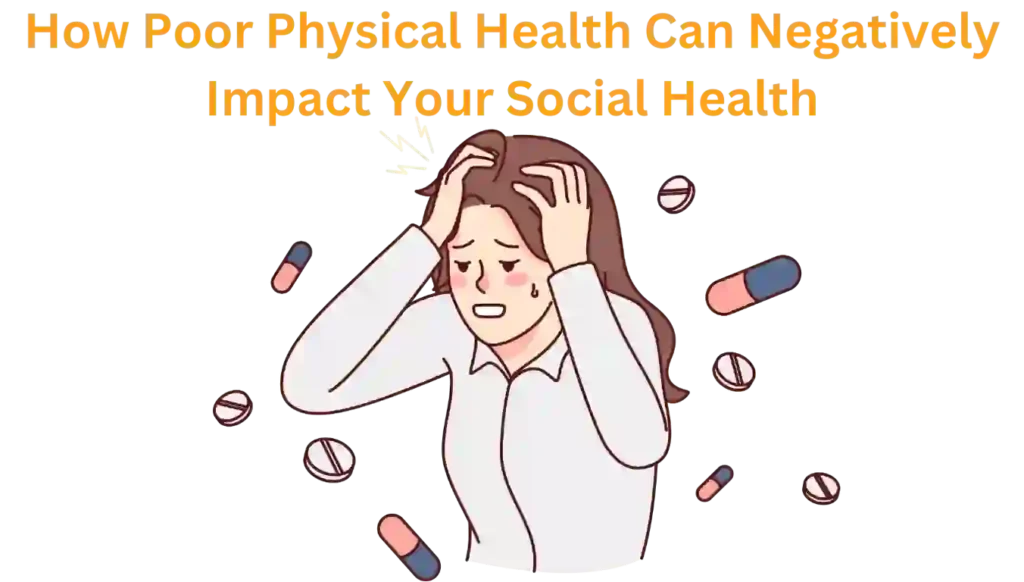Mental health is about how we feel, think, and cope with life’s challenges. It’s as crucial as physical health for a happy life. Recognise mental health symptoms helps us understand when someone might need support. Symptoms can vary, from feeling constantly sad to struggling to concentrate or sleep.
This article aims to highlight common mental health symptoms to help people identify when they or someone they care about may need professional help. By recognizing these signs early on, individuals can seek the support they need to improve their mental well-being and lead fulfilling lives. It’s essential to talk openly about mental health to reduce stigma and ensure everyone gets the help they deserve.
Table of Contents
Mental Health Symptoms
Mental health symptoms can affect anyone and vary widely in their presentation. Recognizing these symptoms is crucial for understanding when someone may need support and intervention.
- Persistent Sadness or Hopelessness: Feeling down or blue for an extended period without relief. It may accompany feelings of worthlessness or despair, affecting one’s outlook on life and ability to enjoy activities.
- Extreme Mood Swings: Rapid and intense shifts in emotions from high to low or vice versa. These mood swings can disrupt relationships and daily functioning, leading to unpredictability and distress.
- Intense Anxiety or Fear: Overwhelming worry or fear that affects daily life and functioning. This anxiety may be irrational or excessive, causing physical symptoms like trembling, sweating, or rapid heartbeat.
- Changes in Behavior or Routine: Significant alterations in how one acts or their daily habits. This can include withdrawing from social activities, becoming more impulsive or reckless, or struggling to maintain regular routines.
- Difficulty Concentrating: Struggling to focus or pay attention to tasks, even simple ones. This difficulty may interfere with work, school, or personal relationships, leading to frustration and decreased productivity.
- Physical Symptoms: Manifestations in the body such as changes in sleep patterns, appetite, or unexplained aches and pains. These physical symptoms often accompany mental health issues and can exacerbate emotional distress if left unaddressed.
Recognizing Red Flags
Identifying warning signs or red flags indicating potential mental health concerns is crucial for early intervention and support. Here are some key indicators to look out for:
Behavioral Changes
Noticeable shifts in behavior, such as sudden withdrawal from social activities, increased irritability, or engaging in risky behaviors. These changes may indicate underlying emotional distress or mental health issues.
Emotional Distress
Persistent feelings of sadness, hopelessness, or unexplained mood swings that significantly impact daily life and relationships. It’s important to pay attention to the duration and intensity of these emotions, as they can signal the need for professional assistance.
Cognitive Challenges
Difficulty concentrating, remembering things, or making decisions, which can affect performance at work, school, or home. These cognitive challenges may indicate underlying mental health issues or stressors that need addressing.
Physical Symptoms
Physical manifestations like changes in sleep patterns, appetite, or unexplained physical ailments without apparent medical cause. These physical symptoms are often interconnected with mental health concerns and should not be overlooked as potential indicators of distress.
Factors Influencing Symptom Severity
Understanding the various factors that can influence the severity of mental health symptoms is essential for providing appropriate support and treatment.
- Environmental Factors: External circumstances such as stress at work or home, traumatic events, or socioeconomic status can exacerbate or alleviate mental health symptoms. Living in a supportive and nurturing environment can help mitigate symptoms, while adverse conditions may worsen them.
- Genetic Predispositions: Genetic factors can play a role in predisposing individuals to certain mental health disorders, influencing the severity and manifestation of symptoms. Family history of mental illness can increase the likelihood of experiencing similar issues.
- Co-occurring Medical Conditions: Physical health conditions can interact with mental health issues, either worsening symptoms or complicating treatment. Chronic illnesses or neurological disorders can contribute to the severity of mental health symptoms and require integrated care approaches.
- Substance Abuse: Substance abuse or dependence can significantly impact mental health, exacerbating symptoms or masking underlying disorders. Alcohol, drugs, and other substances can alter brain chemistry and contribute to the development or exacerbation of mental health issues.
Seeking Mental Health Treatment
Seeking mental health treatment is a crucial step towards improving well-being and quality of life.
Importance of Early Intervention
Addressing mental health concerns early can prevent symptoms from worsening and improve treatment outcomes. Seeking help at the first signs of distress can lead to faster recovery and better long-term management. It’s like catching a cold before it gets worse; the sooner you start treatment, the better your chances of feeling better quickly.
Types of Mental Health Professionals
There are various professionals trained to provide mental health support, including psychiatrists, psychologists, counselors, and therapists. Each has different specialties and approaches, so finding the right fit is essential for effective treatment. It’s like finding the right tool for the job; you want someone who understands your needs and can help you in the best way possible.
Treatment Options
Mental health treatment may involve therapy, medication, or a combination of both, depending on the individual’s needs and preferences. Therapy can help individuals develop coping skills and address underlying issues, while medication can manage symptoms. It’s important to explore all available options and work with a healthcare provider to create a personalized treatment plan that meets your unique needs.
Overcoming Barriers to Treatment
Barriers such as stigma, financial concerns, or lack of access to care can prevent people from seeking help. It’s essential to address these barriers by promoting mental health awareness, advocating for affordable care, and expanding access to services. Remember, seeking help is a sign of strength, and there are resources and support available to help you overcome any obstacles to treatment.
Conclusion
Recognizing signs that someone might need mental health treatment is crucial for their well-being. Whether it’s feeling really sad all the time, having sudden mood swings, or struggling to concentrate, these signs shouldn’t be ignored. Seeking help early can make a big difference in how someone feels.
It’s okay to ask for support when you’re not feeling okay. There are different ways to get help, like talking to a therapist or trying medication. Overcoming barriers, like feeling ashamed or not having enough money, is important too. Remember, getting help is a brave choice that can lead to feeling better and living a happier life.








Pingback: Which Benefits May Result From Using Mental Health Services